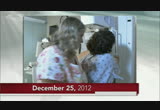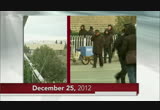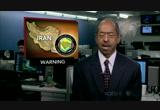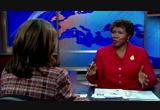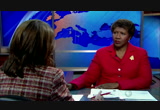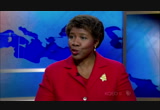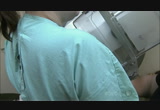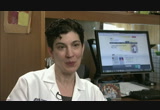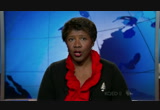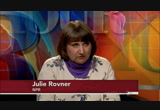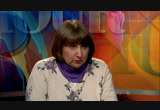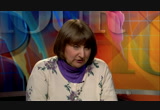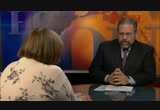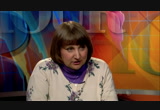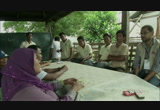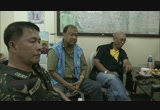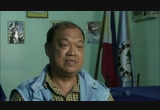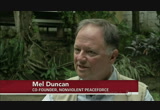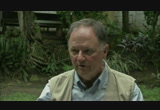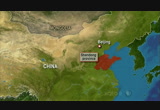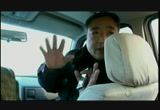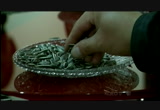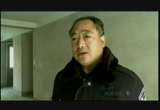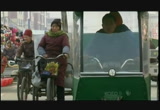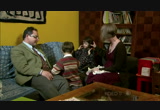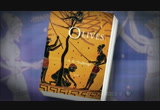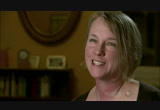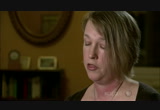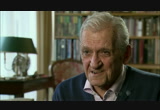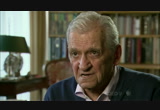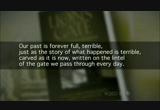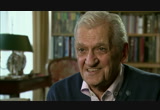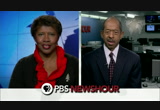tv PBS News Hour PBS December 25, 2012 3:00pm-4:00pm PST
3:00 pm
elections: house races in illinois and south carolina, and high-profile politics in new jersey. we have two health stories. first, are annual mammograms necessary? betty ann bowser examines the conflicting answers. plus, 2013 will be a pivotal year for the new health care reform law. ray suarez gets an update from julie rovner of npr. from the island of mindanao in the philippines, fred de sam lazaro profiles a group of peacekeepers struggling to maintain a fragile cease-fire between government and rebel forces. itn's john sparks reports on police officers in china, and their accusations of widespread corruption by local officials. and jeffrey brown samples the poetry about greece's financial woes and its austerity measures.
3:01 pm
3:07 pm
the election commission in egypt confirmed today the new constitution won nearly 64% of the vote in a referendum. the panel also reported turnout was just a third of the country's 52 million registered voters. president mohammed morsi and his muslim brotherhood backed the draft constitution. opponents warned it paves the way for islamic rule and curbs on civil liberties. the six persian gulf arab nations demanded an end to what they called iranian interference. they issued a statement today at the end of the gulf cooperation council's annual summit. the statement gave no details. the six u.s. allied countries, also called for swift international action to end the bloodshed in syria.
3:08 pm
in central asia, a military plane crashed early this morning in kazakhstan killing 27 people including the country's head of border security. the russian-made aircraft went down near a southern city. the dead also included seven crew members and 19 border guards. there was no immediate word on the cause of the crash but kazakhstan has been plagued by heavy winds and snow in recent weeks. the long-time actor charles durning died monday at his home in new york. he came to be known as the king of character actors. in a 50-year career that spanned broadway, the movies and television. along the way he earned two oscar nominations. one was for his role as the corrupt governor in the best little whorehouse in texas in 1992. in tootsies he played the suitor of dustin hoffman who was posing as a female soap opera star. now back to gwen. >> ifill: we turn to politics
3:09 pm
and part 2 of our lookality upcoming elections. last night i had talkd with newshour political editor christina bellantoni about how senate contests. tonight we continue our conversation. welcome. let's talk some more politics. i want to start with illinois where jesse jackson, jr. who just resigned his house seat has left a wide ownen political fight in his wake. >> there will be a special election to fill his house seat which is the second district on the south side of chicago. just about 10 blocks or so from president obama's home. this is a very geographically diverse district. it includes the urban parts of the south side of chicago, sub urban parts. and rural farmland on the southern tip of the district. and such a diverse geography means the field is very diverse. a whole lot of candidates, seven pretty well known names in chicago politics are running right now. that number could increase. when the petitions come in to file for the race in a week or
3:10 pm
two. >> ifill: i have to ask you this because it seems for a long time jesse, jr. had in problems. either legal or health problems. and maybe people have been positioning themselves for a while for this race. has that been going on even before he said he was going to drop out? >> absolutely. there's no shortage of ambitious politicians in chicago. i'll use the former congressman, for example, she is running in this special election. she also ran against jesse jackson, jr. in the primary sensing he had some vulnerabilities then. she ended up losing by a large margin then. she's back again like i said for this special election one in a field of about seven candidates. >> ifill: let's turn to south carolina because there's something very interesting that's happening there which is we're beginning to see people thinking about running for the house seat being vacated by tim scott who just became the appointee to be senator to take jim demint's place, dominoes falling. what are people thinking about running kind of know each other? >> a little bit. this seat could be vacant as early as next week, january 2
3:11 pm
when they come back into session for the 113th congress. what's really interesting about this is former governor mark sanford who for a time was very popular republican. he fought president obama's administration on the stimulus program. he had a lot of different things that had him really in high regards in conservatives. then he had an affair. >> ifill: but he's running against or looking... >> jenny sanford his ex-wife hassles expressed interest in this house seat. what's very interesting about this in addition to the fact that they were once married and he had this affair and went public and ended up leaving the governor's race in a bit of disgrace and under investigation for using state funds for meeting his miss stress. he held this seat for three terms. this is a district he's familiar with. she was actually his campaign manager when he held this seat in the late 1990 as and into 2002 when he was elected as governor. neither of them are backing away. both of them have said they're interested. they haven't officially
3:12 pm
declared. he's got more than a million dollars in the bank left over from his political career. it's possible he could be in good shape there. >> ifill: it's interesting. at the time that this story, this very lurid story about mark sanford first surfaced, people thought at the time he's toast. he won't be able to serve out his term but he did survive. he servedded out his term, didn't he? >> he did survive. you know, like christina said before this scandal he was pretty popular. people talked about him even running for president. he was well regarded in washington d.c. too among the delegation. yes, i think this is the perfect path for a comeback if he is going to do that. he's going back to his old district where he's known well. he'll make a go. it will either work or it won't but this is the most direct path back to public life and public service he could probably find. >> ifill: if they run against each other it will be the most hotly covered race in the country. >> this is a republican seat so it's likely that a republican will hold that seat when it's over. >> ifill: let's talk about the governor of new jersey.
3:13 pm
we had been watching chris christie a lot whether it was to do super storm sandy or whether to campaign for mitt romney. there's a lot of question about whether he would get the challenge from the very popular mayor of newark, at least popular in some circles cory booker. >> what's interesting about this is that cory booker put out a web video which is how all the politicians announce these days. he said i'm interested in running for senate. that job isn't actually open at this point. senator frank lautenberg holds that seat, a long-time democrat. he has not telegraphed what he's going to do. when cory booker put out this statement that he was going to run lautenberg said there's a time for politics. it's next year. that's when i'll address it. >> lautenberg is 8 years old. he's in his 80s. he might decide to run. he could be... decide to keep that challenge afloat there. we could either be talking about a democratic primary or booker is very well known. he's got a strong national presence. so this is somebody who could clear the field for the
3:14 pm
democrats but either way it will be competitive. republicans always say that they think he's within their sights. chris christie proved to republicans that a republican can win there. it's going to be very interesting but that governor's race is next fall. >> ifill: let's talk about that governor's race next fall. does chris christie have a free run? >> it's looking like his ride to a second term will be a lot easier than it would have been if cory booker were in the race. these are two big new jersey personalities. in a state like new jersey those are big, big personalities. i think he'll have a much easier time. this obviously sets him up in a much better position should he decide to run for president in 2016. he can focus on that building a national profile and a national donor base, not having to worry so much about his challenge at home. >> ifill: you raise an interesting point. i wonder what you both think about this, whether both of these folks, chris christie and cory booker have such national platforms now that we can expect to hear a lot from them, no matter what happens in the 200
3:15 pm
2004... >> i would think so. certainly what you saw chris christie's complement of the president during super storm sandy. then cory booker has been out there not just doing the national talk show circuit but also even in the comedy circuit. the two of them recorded a video playing off each other. the two of them have a big personality but also the big profiles. they're not going away no matter what they do. >> ifill: they're being watched. i don't know that cory booker is being talked about for president but certainly chris christie is. they're being watched very closely by national figures. >> absolutely. chris christie topped the list of contenders that republicans would like to see run. his favorability rating especially post hurricane send is quite high in new jersey. republicans would like to see someone who is a little more, i guess, not a southern governor. someone from the northeast try again. i think chris christie has a better profile for that than mitt romney did. they would like to see him run again. cory booker, 2016 might be a
3:16 pm
little soon for him to run. if he gets in the senate, he can serve out a term change and try again maybe 2020, 2024. >> ifill: i want to know what bruce springsteen has to say. whatever he says goes. thank you both. >> merry christmas. ifill: thank you. you can watch the first part of our discussion about the latest scramble for senate seats in two states. find that on our politics page. now to a pair of health stories and the important questions they've prompted. first a recent study on mammograms is reigniting a longstanding debate over the benefit of annual screenings. newshour health correspondent bete ann bowser has our report. >> reporter: last year after a routine mammogram detected two tiny breast cancers 56-year-old diane wright underwent a lumpectomy four months of
3:17 pm
chemotherapy and six weeks of radiation. >> i think i was devastated. i was surprised. i was shocked. i was overwhelmed by it all. >> reporter: wright has been following the advice of the american cancer society, getting an annual mammogram every year since the age of 40. >> i feel very fortunate that it was caught then because i had really no symptoms or signs that i had breast cancer. i felt good. without the mammogram i don't know how long it would be before it was discovered. >> reporter: like millions of american women wright thinks mammograms are a good screening tool. but she now finds herself at the center of yet another controversy in the medical community over just how effective annual mammograms really are. this latest dust-up came on the heels of a new study in the new england journal of medicine last month. the study found that annual mammograms do a good job of detecting new small cancers.
3:18 pm
finding over half of them in the past 30 years. but the researchers said mammograms have not been able to tell the difference between those benign, slow-growing cancers and those that could on to become fatal. and medical professionals were alarmed at the study's conclusion, that mammograms at best have only had a small effect on the rate of death from breast cancer. fran is a best cancer survivor and president of the national breast cancer coalition. she says from her perspective, the problem with mammography is it leads doctors to overtreat women. >> we find situations that are not yet breast cancer and we treat all of these women with toxic therapy. most of them do not need it. >> reporter: overall death rates from breast cancer have been declining for the last quarter century. but researchers say that's not because of mammography.
3:19 pm
it's because treatments have improved. >> a dramatic turn-around this morning and the argument over mammograms, who should get them and when. >> reporter: just three years ago, mammograms came under attack when a government health task force said women didn't need mammogram screening until the age of 50 and then only every two years. >> lift our breast. reporter: since that recommendation, the number of women in their 40s who are getting mammograms has declined slightly. according to a new mayo clinic study. this doctor, the chief radiologist at sibley memorial hospital in washington d.c., thinks that's a dangerous trend. >> confusing women. it's going to cost a lot of lives. it's also going to result in an excessive treatment required for people that delayed getting their cancer detectedded. they're not going to be able to save their breast. they're going to have mastectomies or more radical
3:20 pm
surgeries or more aggression i have been chemotherapies. >> reporter: this doctor strongly disagrees with the findings of the new mammogram study. she says there's plenty of evidence to support annual screening starting at the age of 40. >> one out of six cancers occur in women in their 40s. this is an age group that we don't want to forget. and it is worth it. it has been shown to be effective. all the screening trials that been done in the past followed through many decades have shown, looking at the women who presented for screening, a decreased number of deaths decr0 force 50%. that's substantial. >> reporter: so far, the american cancer society has not changed its recommendation, that all women over 40 get regular screening. that's been their policy since 1983. dr. otis brawley, the society's chief medical officer, sees
3:21 pm
nothing in the new study that would change that. his greater concern is the large number of women who never get screened. >> i am much more concerned about the fact that 35% to 40% of american women get no mammography screening and no breast cancer screening. i'm even more concerned about the fact they have numerous studies to show a substantial portion of the population diagnosed with an abnormal mammogram can not follow up to figure out why it's abnormal. >> reporter: dr. sandra swain is the president of the american society of clinical onicology. like dr. brawley, shy believes all women over 40 should get annual screening. and she worries that all these conflicting studies with their conflicting set of recommendations leave women confused and ill-informed. >> studies like the one presented in the "new england journal" are very dangerous for women. we already know that at least 25% if not more of women don't get mammography, and this could,
3:22 pm
with all the press surrounding it, make women less likely to get mammography, so i think it is dangerous. >> reporter: oncologist dr. claudeine isaac, head of the clinical breast cancer program, at med star georgetown university hospital, thinks there are also risks to getting too much treatment. >> the risk of causing anxiety due to false positive screens, causing unnecessary procedures, like boston polices. bu boston biopsies, but i think the one that doesn't get play is the rick of overdiagnosis, which is incumbent upon those those of us in the scientific and medical community is to try and figure out which cancers are going to cause problems and which cancers are not. and we're not quite there yet. but we clearly have a job to do, and i think we're well on the way to at least trying to answer that question. we're not there yet.
3:23 pm
>> reporter: and until that day comes, women have little recourse other than to read all they can on the subject and discuss it with a medical professional whose judgment they trust. . >> there is much more on this story online where you can find a breakdown of the debate and the data on mammograms and get commentary with scientific evidence from three leading physicians. to our second health story, what's ahead for implementation of federal health care reform? three years ago, the senate passed a bill on christmas eve that resembled much of what would become the final law. now, the obama administration faces the challenge of making it work amid continuing resistance from some states. ray suarez explored those issues in a conversation he taped last week. >> suarez: the full impact of health reform law won't be felt until 2014. that's when many of the
3:24 pm
uninsured will either start getting new coverage through medicaid or receive subsidies to buy insurances through new marketplaces called exchanges. but the coming year is also a pivotal one in many respects. for one thing, states must begin setting up those exchanges, and there remains plenty of resistance. just 18 states have said they will set up their own exchange. many republican governors have indicated they'll leave it up on the federal government to create one. julie roddener of npr has been covering all this and takes a look ahead. now, we've come to the time when the states have had to pretty much declare their intentions. now that's done. what does america's insurance map look like now? >> well, as you mentioned, 18 states have said they want to do their own expectings. states have until february to decide if they want to do one in partnership with the federal government. if they decide not to do that, then the federal government will build this exchange for them, and exchangees, of course, are where people will go-- individuals and small
3:25 pm
businesses-- to actually purchase insurance under the new law because, remember, most people will be required to have health insurance or else they'll pay a fine. >> suarez: some big states, texas, florida, have declared they're out. what happens there? >> that's right. so in the cases will of those states, then the federal government will come in and build the exchange for them. so it will look to the consumer, to the small business, the same as it would if the state had done it. there will still be a texas health insurance anything and a florida health insurance exchange but it will be run by the federal government and not by the state. >> suarez: now when when that happens, until now, insurance has been captive inside state borders. there is no regional marketplace. can the fed obtain some sort of efficiency of scale by being able to run such a large number of state programs? >> they will stilling individual and basically done state by state balls, insurance is still regulated within each state. there will be in every exchange,
3:26 pm
however, two national plans. there will be-- so there will be at least two plans that will be available in every state. that was-- that is going to be true even in the straight they're setting up their own exchanges. that was something stipulated by the law. but basically, what the hope is, is that the federal government by now they're gog have to set up probably 30 extinction instead-- it was assumed 10 or 15-- the idea is that they'll get an idea of how to do it since they're going to have to set up so many. perhaps it won't be quite so expensive to do that. but the idea of letting the states do it was that the states knew best what their insurance markets looked like. this was to give these states that will probably be resistant a chance to have some control over what was going to happen. instead, the states sort of said, "we're just going to wash our hands of this. we don't know how much it's going to cost. we don't really have any interest in facilitating this law because we don't like it so we're just going to step away and let the federal government do it. >> suarez: and create a
3:27 pm
paradoxical situation? many republican governors, the thing they hate more than anything is federal influence in their business, and here they are inviting the federal government to run a very basic part of daily life in their state. >> exactly. i mean, that has been pointed out by many people. you have governors who spend all their time talking about states' rights, about not having the federal government come in and prun things, now saying, "okay, federal government, you can come in and run this. now, it should be pointed out that the federal government has said at any point state would like to take this over, they may. so i think a lot of these governors are saying, well, we'll let the federal government build it, and then maybe if it's not so terrible, we'll take it over later. >> suarez: with the new supreme court decision of 2012, the states don't have to play with the preaccepts of the affordable care act in rung their medicaid programs. do the numbers still work, the finely calibrated numbers that
3:28 pm
set up the affordable care act, do they still work if a lot of states don't answer that program? >> this is a big concern. one of the things exchanges have to do can is link people eligible for medicaid with medicaid. it's another big irony, depending on how the states that do it themselveses it do it. it can be easier or harder for that to happen. now, if federal government does it, the federal government is going to make it very clear that people who are eligible for medicaid fiant 'd find their way to medicaid. now, people who are currently eligible for medicaid, obviously, will get on medicaid, and that's why a lot of these republican governors, even if they're not going to expand medicaid-- which is what the law originally envisioned and the supreme court made optional-- those people may be left without anything. but the people who are currently eligible for medicaid will be steer told medicaid if they're eligible. that's called the "woodwork" effect. people are expected to come forwardux try to buy insurance through the exchanges and someone at the exchange will say, "you're actually eligible
3:29 pm
for medicaid now." governors are having to put money for that in their budget. that's one of the things governors were worried about, these people currently eligible for medicaid but not getting it. then there will also be a lot of pressure on the governors to expand medicaid anyway, even if they say they don't want to do it. that's going to be a big source of money for hospitals in those states and other safety net providers. if the governors don't expand medicaid, those hospitals are going to lose money that they're currently getting for federal government to pay for the uninsured because the idea behind the law was that, well, we're going to expand medicaid so those hospitals won't need the extra money they're now getting because there won't be that many uninsured. so these hospitals are going to go to the governor schedules say, "look, this is free money coming from the government or almost free money. it pays 100% for the first three years, phases down, but it's still 90% after that." they'll say, "if you don't take tyou're going to have to find the money to pace." >> suarez: what else is going to happen during 2013 that
3:30 pm
people will actually notice in their livesed in the way they shop for, buy, acquire health care for themselves and their families? >> well, one thing wealthier people will notice is there will be a couple of expanded taxes in 2013 to do some of the other paying for the things that will nap 2014. wealth yearl people will see an additional tax-- an additional medicare tax. their payroll tax will if up by .9%, and there label tax for the first time on non-wage income in medicare for people who earn over $200,000 for an individual, $250,000 for a couple. there will be a tax on investment income for the first time. there will also be a limit on what you can put aside in the so-called flexible spendings account. these are places you can put pretax money. basically it hundreds you pay for things that your insurance doesn't cover, things like orthodontia, perhaps, or eye glass or your deductibles and co-pays on your insurance
3:31 pm
plans. usually there could be no limit or a large limit of $5,000, $6, 000, and that's being cut to $4500. those are a couple of things people will experience next year. >> suarez: which means you'll have plenty of work to do in 2013. >> i will have plenty of work to do in 2013. >> suarez: npr's julie rovner, thanks a lot. it >> ifill: next, protecting civilians in a conflict zone with eyes and a notepad. the island of mindanao in the philippines, hit hard by a typhoon earlier this month, has seen separatist conflict for decades. even though the government and rebel forces signed a peace treaty in october, sectarian tensions run high. special correspondent fred de sam lazaro takes a look at one unarmed group trying to keep the peace on the island as part of our series, "agents for change." . >> minden ow remains would be of the militarized places in the
3:32 pm
world with frequent outbreaks of violence. the six-year-old child in this picture was caught in a cross-fire, one of the latest victims of a decades-old civil war. tens of thousands of civilians have been displaced from their homes into dilapidated camps. >> many families are still? >> there are still 104 families staying here. we go to our farms during the day but come back here at night. >> reporter: conditions in these camps is an individual group of civilians called nonviolent peace force. they register and relay these concerns to representatives of both sides of the conflict, holding each to the fragile cease-fire early and now to the peace treaty. it what did you hear? >> they provide no material aid, just accountability on both sides for the plight it.
3:33 pm
>> there are many organizations that do medical care and food provisiones, never enough. but i-- what is new here is civilians protecting civilians, and that's where we can make our greatest contribution because the vast majority of casualties in war trade civilians. >> the military has set up a camp. does that still not give you enough funds for them to be staying there at night? >> no, the reply came, armed groups continue to pose a threat, so people feel safer in the crowd camp refuge at night. >> i think families are still insecure about the situation. >> a few minutes later, the monitors were relaying the is it thes' concerns to the philippine military, in charge of security in this region. >> some of the members are
3:34 pm
suggesting to-- the problem is bringing the military inside the community. it might cause other problems. so we have to study this some more. >> reporter: nonviolent peace force's annual budget of $7.5 million comees from the u.n. and the governments from several developed nations, though not the u.s., also from private donations. the group worked in sri lanka during its civil war and now also serves in south sedan and breakaway regions in georgia. monitors are paid about $1500 u.s. a month plus living expenses. in total, the group claims, their costs are about half those of a typical armed u.n. blue helmeted soldier. their challenges have been daunting. when this island became part of a newly independent philippines in 1946, muslims, were a majority here, and they resisted, demanding a separate state. over time, christian settlers
3:35 pm
moved in. they now outnumber muslims 3 to 1. ed it the leading insurgent group no longer seeks independence but more autonomy from manila. rasheed is the secretary of the morrow islamic liberation front. do you consider yourself philippine peepo? >> no, no. by nationality, no? i am a morrow in nationality. >> journalist glenda gloria wrote a book about the conflict and said it is as much about economic inequality as religion. she traces much today's problems back to ferdinand marcos. >> the government insiitute a lot of government policies that suppressed the muslim population. and after that, the military
3:36 pm
really violated human. >> reporter: that sowed the seeds for radicalization by some rebel fighters. by the 1990s a regional al qaeda affiliate began to thrive. >> to even help you understand why you're oppressed. >> reporter: are they growing? >> as far as we're concerned it's not growing. >> reporter: army major carlos sole says they have largely been contained as a military threat in part helped by u.s. advisers who remain in the region. philippine officials also note that the peace treaty gives them more autonomy and control over resources. factions on either side remain
3:37 pm
unhappy with the peace process and there are frequent localized clashes, and trust continues to be in short ply. that's a void both the military and the main rebel group the milf, say foreign civilians can fill effectively. >> only an armed civilian protects the monitors would be effective because our people have been traumatized. if they only see government and m.i.l.f. working for protection, there is no impartiality. since they are foreigners, the perception could be they are neutral compared to local organizations that are involved in the peace forces? >> reporter: regardless of their faith. >> regardless of their faith. and i think the number is a mixture of hindues, christians,
3:38 pm
and muslims. >> reporter: the unarmed peace keepers also come for the long haul. this man joined group two years ago and says the relationship with locals makes a big difference. >> you can see there are no fences, no guards outside the office. in spite of the fact where we are based is considered a dangerous place by most philippineoze. but because we are living in a community that supports our work, understands our work, we draw a lot of security from that. > that. >> reporter: earlest inkling that the concept might work came in the 1980s. he was working in nicaragua. >> what we found over a seven-year period was none of the villages were ever attacked when there was an international presence. this was at a period of a war where 50,000 people were being killed. >> reporter: refining and
3:39 pm
putting the idea into practice took years of studying similar attempts, he says, including an ill-fated one during bosnia's civil war. >> people, primarily from uranium, had been recruited, many of them not trained, and they came in to a situation where they in fact drew artillery and drew artillery into the areas where they were trying to protect, and they made a lot of problems in terms of having to be taken out. >> reporter: now, long before they deploy, the group spends months in training, studying the conflict, and forging partnerships with citizen groups. >> we have to engage with local partners who can understand things in ways that internationals will never be able. war is complicated and so is peace, and we're always learning interest we have to remain humble, and this is not a tool
3:40 pm
that fits every situation, and that will rid the world of war. >> reporter: the group hopes to test that theory in more conflict zones that unarmed civilians can be as effective as militaries in ensuring the peace and safety. all sides here say they've done that in minden ow. >> ifill: a version of this story aired on "religious and ethnics news weekly. " >> ifill: a version of this story aired on the pbs program "religion and ethics newsweekly." fred's reporting is a partnership with the under-told stories project at saint mary's university in minnesota. >> ifill: and to another part of asia, china, where citizens are increasingly fed up with reports of corruption and lack of accountability. john sparks of independent television news filed this report on an unlikely group of government critics in shandong province, south of beijing.
3:41 pm
>> it's at the center of everything. he'd come to hear a story about corruption in china and the people who wanted to talk to us were policemen, members of one of the most powerful institutions in the land. we were picked up by two officers and whisked away in their squad car. we'd been complaining about our police chief, he is corrupt but the government has done nothing to investigate him, ignored the complaint of several hundred officers." >> they say their boss has cheated them out of millions of pounds in a property deal, and they want to expose the whole affair. "we want to tell the world our story and show you how bad corruption is in this country." >> officers wanted to be interviewed right away, and they're taking to us a hiding spot. i think they're worried word
3:42 pm
will leak out that we're here. it's rare to hear police officers speak out like there. but the public has become increasingly vocal and angry about corruption in the ruling communist party. thousands of protests have triggered every year by land grabs and other dodgy dealings, and it is the police called on to reimpose order in such situations. when we got to the hiding spot, however, the officers told us they shared many of the concerns held by protesters, the people instrowctd silence. "in the past, we tried to stop people from protesting, but now we're in the same situation as them. we don't know what to do." they told me they contributed money to a low-cost housing scheme for policemen just before they moved in, the police chief jacked you want price.
3:43 pm
"i'd been working for the communist party my whole life, and now i don't even have money for a flat. my life savings have been stolen." >> reporter: this is the apartment complex. the police chief who organized the project has been transferred to another department, but his action have not been investigated. the police, who have brought us here to see these apartments, four policemen, have just got a call. they say another group of local police are on their way here to stop us from filming. so we've got to move quickly. so mr. chen led us inside to have a look at one of the flats. when you look around here, how do you feel? "i feel so angry about this. i've been everywhere to complain about it. to every level of government, and nobody is listening." mr. chen and his colleague investigation here six times to complain. it's called the petition'
3:44 pm
petition's bureau, the last ave. of those with grievances against the state. but on every occasion, says mr. chen, policemen prevented them from registering their case. it's a sensitive location. security personnel didn't like us filming here. back at the hiding spot, the officers from changdong told us they wouldn't give up. this "we'll keep trying to petition, but we know it publicly won't lead anywhere. still, what choice is there? we have to try." they remain unconvinced about the depth of corruption in china, then take their word for it. the new batch of communist party leaderappointed last month. party secretary wander corruption it it could spelt end of the country. but doing something about it in places like chengdong province will be do you have. they say one-party state with little transparencies or accountability. the former police chief didn't
3:45 pm
return our calls. but the government could make a start by listening to their own policemen because there are many here who have had enough. >> ifill: finally tonight, another way of looking at the ongoing economic crisis in greece. jeffrey brown was in athens recently and talked to two poets about hard times now and in the nation's past. >> brown: so sometimes you're out with the kids and a demonstration starts up? >> we have friends in the center, and we've had play dates where we've had to figure out when we think the riot is going to start. >> brown: an american poet in athens, alicia stallings, moved here 13 years ago with her greek husband. >> i think you have your sock inside out. >> brown: they now have two young children, and have watched the nation go from the euphoria of the entry into the euro and the hosting of the olypmic games to the despair of an ongoing financial crisis that's having severe economic and social consequences.
3:46 pm
>> you see, every time you walk down the street, there'll be shops newly closed or having a sellout sale. you see more homeless people on the streets. you see more people begging-- and a different class of people begging, people who had recently been sort of somewhere at the bottom of the middle class. >> brown: stallings is trained as a classicist, reading ancient greek and latin. she did an acclaimed translation of the roman philosopher, lucretius' "the nature of things." and her own poetry has garnered several prizes. in 2011 she was the recipient of a macarthur fellowship, the so- called "genius award." her latest collection, titled "olives," explores, among other things, ancient and modern lives in her adopted home. >> there's weirdly a lot of energy in athens, and, whether it's good or bad, there's a feeling. >> brown: what kind of energy?
3:47 pm
>> maybe there's a "there's nothing left to lose" as a kind of freedom as well. people are going out to plays. they're still going out and doing things, but, you know with less money. but there's an urgency. poetry meetings are very well attended. literary events are packed. >> brown: why do you think that is? >> well, it's inexpensive, inexpensive entertainment. ( laughs ) but i think people want to be together. they want to be talking to people. >> brown: the crisis around here, she says, rarely makes it into her poetry in an explicit way. but she did have one direct hit for us, a playful work-in- progress called "austerity measures." >> i love the term "austerity measures." it sounds so poetic. >> brown: even though it's so real, nitty-gritty in what's happening here? >> yes, i love the idea of "measures" as, you know, verse.
3:48 pm
it was prompted by a headline that i read somewhere, which was "greece downgraded deeper into junk," the greek bonds. and it scanned nicely, and i just wanted to play with it. so this is just playing it. "austerity measures." "if you believe the headlines, then we're sunk. the dateline oracle, giddy with dread? "greece downgraded deeper into junk." stash cash beneath the mattress, pack the trunk. will drachmas creep where euros fear to tread? if you believe the headlines, then we're sunk. a crisis that lasts for years? call it a funk. austerity starves the more its maw is fed, and downgrades all our deepest bonds to junk. every politician is a punk-- the right, the left; the blue, the green, the red; ministers in cahoots with the odd monk. we've lost our marbles. elgin took a chunk. caryatids, gone on strike, sit
3:49 pm
down instead. tear gas lingers like a whiff of skunk. weep, pericles, or maybe just get drunk. we'll hawk the parthenon to buy our bread. if you believe the headlines, then we're sunk. greece downgraded deeper into junk." >> brown: if these are interesting times in greece, where you can see a man crawling into a recycling bin to cart away newspapers he'll sell for a pittance, and, of course, the weekly, sometimes daily, protest by various government workers, well, titos patrikios is a man who knows interesting times. >> interesting and difficult. but perhaps every interesting time is also a very difficult time, because easy times are not interesting perhaps. >> brown: a poet and elder statesman of greek letters, he's seen many of the hardships and horrors of greek history in the 20th century, including the german occupation in world war
3:50 pm
ii. >> here is athens during the occupation. a street in the center of athens, against the occupation. >> brown: so this was part of your life? >> somewhere back there, i'm in the crowd. >> brown: even more devastating, he says, was the greek civil war that followed, one that led to his own captivity and torture on an island prison. so you've seen much worse? >> i give always this example: that during the winter of 1940 to '41, every day i was going to my high school. in order to get in the courtyard, i had to go over one, two, sometimes three dead people who had died during the night there.
3:51 pm
>> brown: today, he sees his country in a different kind of crisis, one especially difficult for the young, that goes beyond just the economic. >> an economic crisis always creates other crisis. >> brown: what kind of crisis? >> social crisis, personal, psychological crisis, existential crisis. every latent crisis finds the possibility to come out. >> brown: you see that happening now? >> yes, yes. on the other hand, i am old enough to have the possibility to think about other difficult and critical periods which we have lived. >> brown: a selection from seven decades of patrikios' poetry has been translated into english in a volume titled "the lion's gate." the title poem ends likes this. >> "our past is forever full, terrible, just as the story of what happened is terrible, carved as it is now, written on
3:52 pm
the lintel of the gate we pass through every day." >> brown: have you determined what is the role of the poet in our society? >> the main thing for me, the role of the poet is to observe, to observe-- not only to feel, but to observe, and to try to discover through his observations a small aspect that was not seen up to his, to the moment that he writes it down. >> brown: patrikios still writes every day. a new volume, in greek, came out just this year. and above all, it seems, he maintains his sense of humor, as when i asked his age. >> ( laughs ) 84, 84. sometimes i laugh with that. >> brown: why? >> i laugh because i think it's incredible. how did i manage to arrive at that age? ( laughs ) >> brown: greece today can use some of that laughter, and, with its own rich and often troubled history, from ancient times to today, the poet's sense of
3:53 pm
purpose and survival. >> ifill: we have more poems from stallings and patrikios on our poetry page, as well as a conversation with greek novelist ersi sotiropoulos. find that on art beat. again, the major developments of the day. there were calls for peace around the world, as millions celebrated christmas. police in webster, new york found human remains in the burned-out home where a gunman ambushed and killed two firefighters on christmas eve. the victim appeared to be the shooter's sister. and the election commission in egypt confirmed the new constitution won nearly 64% of the vote in a referendum. online, we ask, who's the best arbiter of the most important events of the year? you, of course. kwame holman tells us about year-end reflections from social media. >> holman: facebook, twitter, google-- the online giants are providing more authority to online users by using algorithms that gauge their "collective curiosity" to evaluate the year.
3:54 pm
hari sreenivasan examines the media trend on the rundown. plus, if a headhunter calls, should you answer? employment expert nick korkodilos offers answers to that and other questions on making sense. all that and more is on our web site, newshour.pbs.org. gwen? >> ifill: and that's the newshour for tonight. on wednesday, we'll have jeff's second story from athens, about how ordinary greeks are coping in tough times. we'll see you online, and again here tomorrow evening. i'm gwen ifill. thank you, merry christmas, and good night. >> major funding for the pbs newshour has been provided by: >> bnsf railway. >> and by the alfred p. sloan foundation. supporting science, technology, and improved economic performance and financial literacy in the 21st century. >> and with the ongoing support
3:55 pm
of these institutions and foundations. and... >> this program was made possible by the corporation for public broadcasting. and by contributions to your pbs station from viewers like you. thank you. captioning sponsored by macneil/lehrer productions captioned by media access group at wgbh access.wgbh.org
3:58 pm
>> this is "bbc world news america." funding of this is made possible by the freeman foundation of new york, stowe, vermont, and honolulu, newman's own foundation and union bank. >> at union bank our relationship managers work hard to know your business. offering specialized solutions and capital to help you meet
3:59 pm
your growth objectives. we offer expertise and tailored solutions for small businesses and major corporations. what can we do for you? >> and now, "bbc world news america." >> egypt's new constitution is approved by more than 60% of voters who took part in the referendum. queen elizabeth hags used her christmas message to praise the volunteers for her diamond jubilee. >> people of all ages took trouble to take part in various ways and in many nations. perhaps the most striking of all was to witness the fellowship and friend ship of those who would gather together on these occasions.
319 Views
IN COLLECTIONS
KQED (PBS) Television Archive
Television Archive  Television Archive News Search Service
Television Archive News Search Service 
Uploaded by TV Archive on

 Live Music Archive
Live Music Archive Librivox Free Audio
Librivox Free Audio Metropolitan Museum
Metropolitan Museum Cleveland Museum of Art
Cleveland Museum of Art Internet Arcade
Internet Arcade Console Living Room
Console Living Room Open Library
Open Library American Libraries
American Libraries TV News
TV News Understanding 9/11
Understanding 9/11